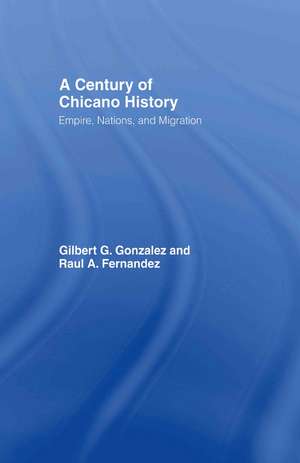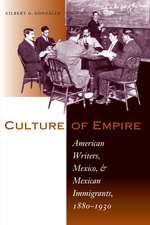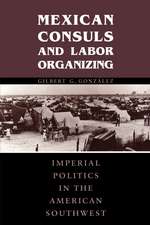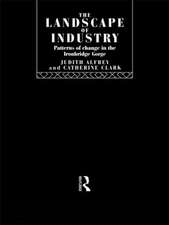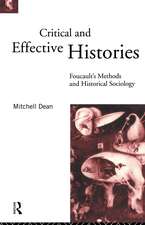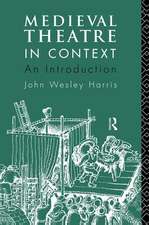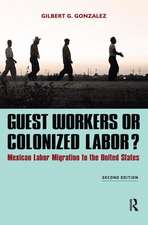A Century of Chicano History: Empire, Nations and Migration
Autor Raul E. Fernandez, Gilbert G. Gonzalezen Limba Engleză Hardback – 9 iun 2003
| Toate formatele și edițiile | Preț | Express |
|---|---|---|
| Paperback (1) | 352.63 lei 6-8 săpt. | |
| Taylor & Francis – 6 iun 2003 | 352.63 lei 6-8 săpt. | |
| Hardback (1) | 1109.99 lei 6-8 săpt. | |
| Taylor & Francis – 9 iun 2003 | 1109.99 lei 6-8 săpt. |
Preț: 1109.99 lei
Preț vechi: 1353.64 lei
-18% Nou
Puncte Express: 1665
Preț estimativ în valută:
212.43€ • 220.95$ • 175.37£
212.43€ • 220.95$ • 175.37£
Carte tipărită la comandă
Livrare economică 14-28 aprilie
Preluare comenzi: 021 569.72.76
Specificații
ISBN-13: 9780415943925
ISBN-10: 0415943922
Pagini: 224
Dimensiuni: 152 x 229 x 20 mm
Greutate: 0.48 kg
Ediția:1
Editura: Taylor & Francis
Colecția Routledge
Locul publicării:Oxford, United Kingdom
ISBN-10: 0415943922
Pagini: 224
Dimensiuni: 152 x 229 x 20 mm
Greutate: 0.48 kg
Ediția:1
Editura: Taylor & Francis
Colecția Routledge
Locul publicării:Oxford, United Kingdom
Public țintă
UndergraduateRecenzii
"Combining cutting-edge theoretical constructs with hard facts, the authors provide us with a landmark study of the causes and processes of emigration from Mexico to the United States. This book is a must-read for all Mexican and Chicano scholars." -- John Mason Hart, University of Houston, Author of Empire and Revolution: The Americans in Mexico Since the Civil War
"In A Century of Chicano History, authors Fernandez and Gonzalez argue persuasively for the centrality of the changing dynamic of late 19th and 20th century American economic and cultural expansion in Mexico in the making of the Chicano community in America. Clear, concise, and readable, A Century of Chicano History provides a new framework for the study of Chicano history. Stimulating in approach, this fine book will have a wide readership." -- Zaragosa Vargas, University of California, Santa Barbara, Author of Major Problems in Mexican American History: Documents and Essays
"Should be required reading for scholars of U.S., Latin American, and borderlands history." -- Jose Angel Hernandez, Hispanic American Historical Review
"In A Century of Chicano History, authors Fernandez and Gonzalez argue persuasively for the centrality of the changing dynamic of late 19th and 20th century American economic and cultural expansion in Mexico in the making of the Chicano community in America. Clear, concise, and readable, A Century of Chicano History provides a new framework for the study of Chicano history. Stimulating in approach, this fine book will have a wide readership." -- Zaragosa Vargas, University of California, Santa Barbara, Author of Major Problems in Mexican American History: Documents and Essays
"Should be required reading for scholars of U.S., Latin American, and borderlands history." -- Jose Angel Hernandez, Hispanic American Historical Review
Notă biografică
Raul E. Fernandez and Gilbert G. Gonzalez are both professors in the School of Social Sciences at the University California, Irvine, and are affiliated with the Chicano Latino Studies Program. Gonzalez is the director the program in Labor Studies, and Fernandez is a Fulbright Fellow serving as the curator for a forthcoming exhibit on Latin music at the Smithsonian Institution.
Cuprins
Introduction1. Chicano History: Transcending Cultural Models2. Empire and the Origins of 20th Century Migration from Mexico to the United States3. The Ideology and Practice of Empire: The U. S., Mexico and Mexican Immigrants4. Agency, Gender and Migration5. The Integration of Mexican Workers into the U. S. Economy6. Denying Empire: The Journal of American History on the Ideological WarpathConclusion: Chicano History into the Twenty-First Century
Descriere
This study argues for a radically new interpretation of the origins and evolution of the ethnic Mexican community across the US. This book offers a definitive account of the interdependent histories of the US and Mexico as well as the making of the Chicano population in America. The authors link history to contemporary issues, emphasizing the overlooked significance of late 19th and 20th century US economic expansionism to Europe in the formation of the Mexican community.
